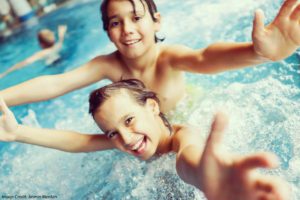As teachers, we want our students to learn academic content: math and reading and music.
At the same time, we ALSO want them to learn how to manage the cognitive functions required to do so.
For instance, we want them to prioritize: “I’ll do this, then that, then t’other.”
We want them to navigate complexity: “If I can’t figure out this problem, I’ll ask my study-buddy. If I still need help, I’ll ask the teacher. If s/he’s not available, I’ll work on this other project until s/he is.”
We want them to inhibit unhelpful thought processes: “I know it’s snowing outside, but I’m going to focus on my book and NOT think about sledding this afternoon.”
In each of these examples, students learn how to manage their cognitive processes — no matter the academic content. Each of those processes is important, whether they’re managing phonics or subtraction or building a bibliography.
We call these mental skills “executive functions.” And, we really need our students to develop them, because executive functions make learning possible.
In fact, they make lots of adult life skills possible. If adults can’t inhibit unhelpful thought processes, we won’t accomplish much in our jobs.
Exercising Executive Function
Because of their importance, we really want to increase these capacities for our students.
Sure enough: if my students explicitly learn how to navigate classroom complexity, they’ll accomplish intricate school tasks more effectively later on.
But let’s ask a different question. Of course, I want my students to accomplish school tasks. I ALSO want them to accomplish tasks that they set for themselves as well.
In other words, we can consider “externally driven executive function” — where students improve at doing what adults tell them to do.
AND we can consider “self-directed executive function” — where they improve at accomplishing tasks they set for themselves.
How might we help young students get better at this second kind of executive function?
Training Self-Directed EF
Common sense suggests a ready hypothesis. If we let children practice managing their own activities, they’ll get better at doing so.
In other words: children whose free time is highly structured might develop “self-directed EF” more slowly than those whose free time is less structured.
Sure enough, researchers have found exactly that correlation.
6-7 year-olds who had less-structured free time (free play with other children, reading by themselves) showed greater self-directed EF than others who spent free-time in structured activities (karate lessons, art classes).
That is: they were better at accomplishing tasks they set for themselves, not tasks set by adults.
What Should Teachers and Parents Do?
As always, we should respond to this research modestly and incrementally. In other words: do not radically change your teaching or parenting style because of one study.
Note, for instance, that this study looked at 6-7 year-olds. (In fact, the results weren’t statistically significant for the oldest children in the study.)
And, that it established correlation, not causation.
And, it took place in a very particular socio-cultural setting (among relatively affluent families).
With these limitations in mind, the sensible implications go like this:
First: Students learn to regulate themselves differently for different tasks.
They get better at accomplishing adult-set tasks by practicing adult-set tasks.
They get better at accomplishing their own goals by practicing doing so.
Second: we want students to accomplish both kinds of goals.
Therefore, third: we should let them practice both ways. They’ll get better at following instructions when we teach them how to do so. They’ll get better at making their own way when we let them do so.
In Other Words…
I might have hypothesized this way: “children just aren’t all that good at self-regulation. The only way they’ll learn to accomplish their own goals is by practicing the tasks I set for them. Over time, they’ll internalize those mental self-control habits, and use them for their own ends.”
This research throws that hypothesis in doubt. Children learn lots of helpful executive function skills from us. And, they learn lots of executive function skills by practicing on their own.
Some of the time, we should let them.




